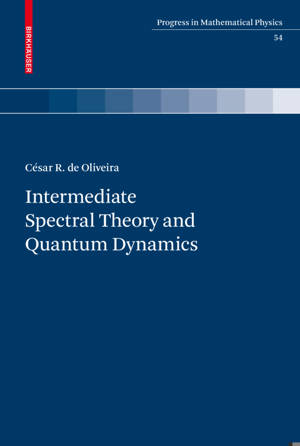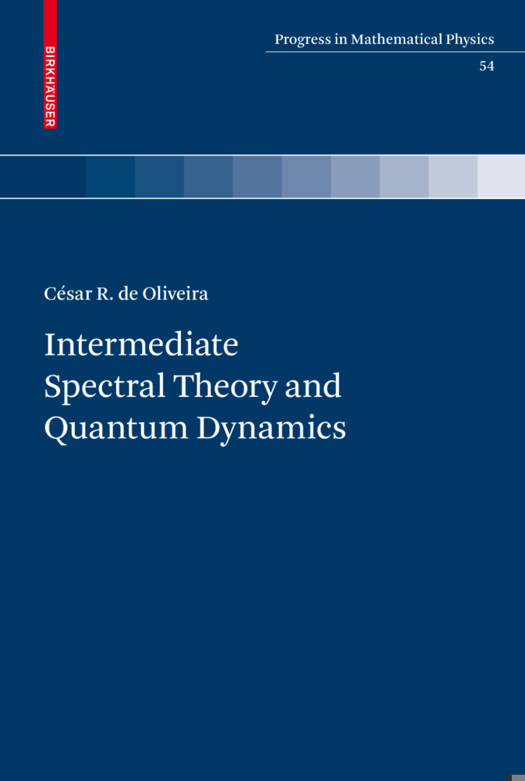
- Afhalen na 1 uur in een winkel met voorraad
- Gratis thuislevering in België vanaf € 30
- Ruim aanbod met 7 miljoen producten
- Afhalen na 1 uur in een winkel met voorraad
- Gratis thuislevering in België vanaf € 30
- Ruim aanbod met 7 miljoen producten
Zoeken
Omschrijving
The spectral theory of linear operators in Hilbert spaces is the most important tool in the mathematical formulation of quantum mechanics; in fact, linear ope- tors and quantum mechanics have had a symbiotic relationship. However, typical physicstextbooks on quantum mechanics givejust a roughsketch of operator t- ory, occasionallytreating linear operatorsas matricesin ?nite-dimensional spaces; the implicit justi?cation is that the details of the theory of unbounded operators are involved and those texts are most interested in applications. Further, it is also assumed that mathematical intricacies do not show up in the models to be d- cussedorareskippedby"heuristicarguments. "Inmanyoccasionssomequestions, such as the very de?nition of the hamiltonian domain, are not touched, leaving an open door for controversies, ambiguities and choices guided by personal tastes and ad hoc prescriptions. All in all, sometimes a blank is left in the mathematical background of people interested in nonrelativistic quantum mechanics. Quantum mechanics was the most profound revolution in physics; it is not natural to our common sense (check, for instance, the wave-particle duality) and the mathematics may become crucial when intuition fails. Even some very simple systemspresentnontrivialquestionswhoseanswersneedamathematicalapproach. For example, the Hamiltonian of a quantum particle con?ned to a box involves a choice of boundary conditions at the box ends; since di?erent choices imply di?erentphysicalmodels, studentsshouldbeawareofthebasicdi?cultiesintrinsic tothis(inprinciple)verysimple model, aswellasinmoresophisticatedsituations. The theory of linear operators and their spectra constitute a wide ?eld and it is expected that the selection of topics in this book will help to ?ll this theoretical gap. Ofcoursethisselectionisgreatlybiasedtowardthepreferencesofthe author.
Specificaties
Betrokkenen
- Auteur(s):
- Uitgeverij:
Inhoud
- Aantal bladzijden:
- 410
- Taal:
- Engels
- Reeks:
- Reeksnummer:
- nr. 54
Eigenschappen
- Productcode (EAN):
- 9783764387945
- Verschijningsdatum:
- 18/11/2008
- Uitvoering:
- Hardcover
- Formaat:
- Genaaid
- Afmetingen:
- 155 mm x 231 mm
- Gewicht:
- 839 g

Alleen bij Standaard Boekhandel
+ 335 punten op je klantenkaart van Standaard Boekhandel
Beoordelingen
We publiceren alleen reviews die voldoen aan de voorwaarden voor reviews. Bekijk onze voorwaarden voor reviews.








